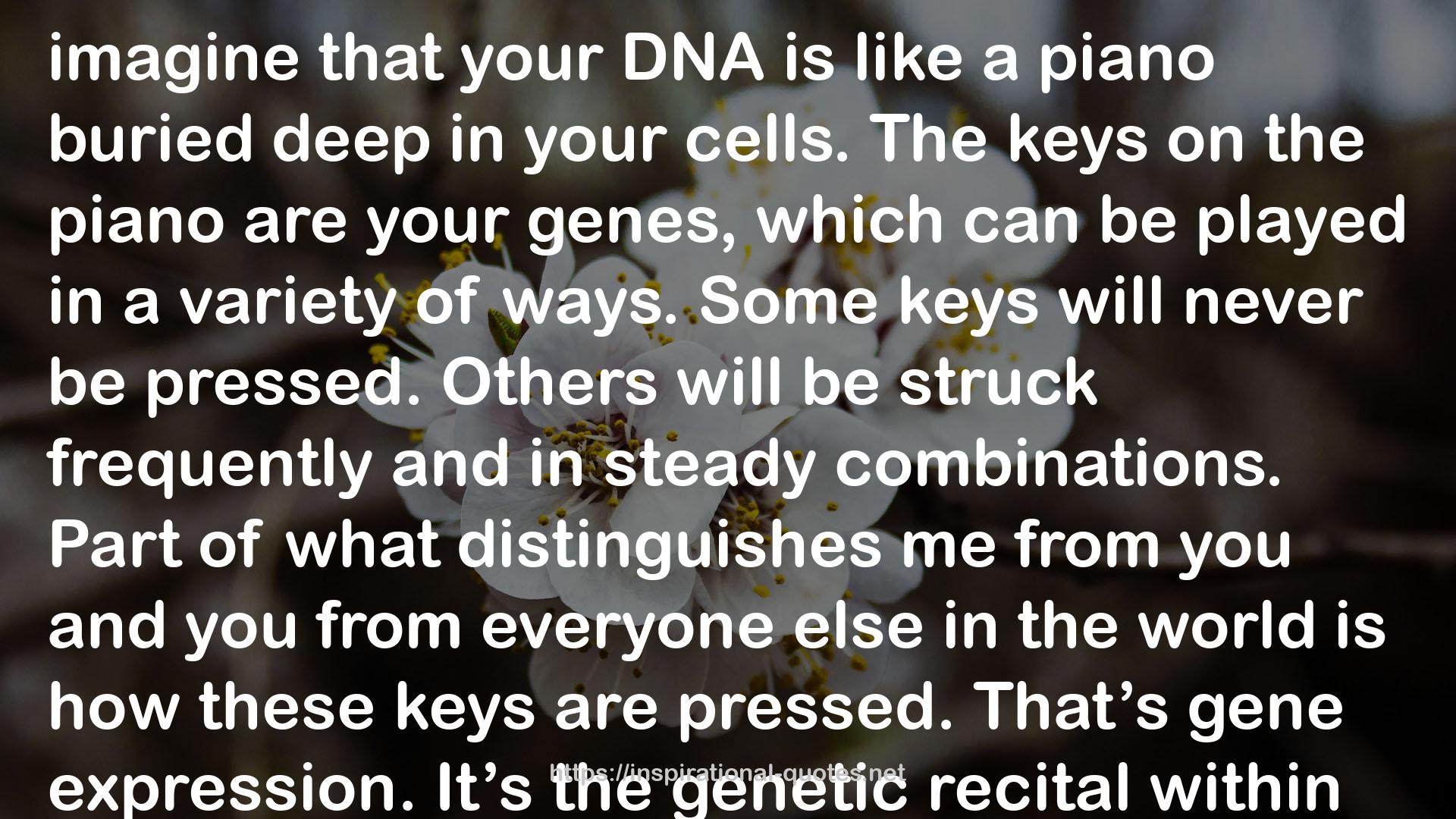" imagine that your DNA is like a piano buried deep in your cells. The keys on the piano are your genes, which can be played in a variety of ways. Some keys will never be pressed. Others will be struck frequently and in steady combinations. Part of what distinguishes me from you and you from everyone else in the world is how these keys are pressed. That’s gene expression. It’s the genetic recital within your cells that plays a role in forming how your body and mind work.
Our inner voice, it turns out, likes to tickle our genetic ivories. The way we talk to ourselves can influence which keys get played.
The UCLA professor of medicine Steve Cole has spent his career studying how nature and nurture collide in our cells. Over the course of numerous studies he and his colleagues discovered that experiencing chatter-fueled chronic threat influences how our genes are expressed.
When our internal conversations activate our threat system frequently over time, they send messages to our cells that trigger the expression of inflammation genes, which are meant to protect us in the short term but cause harm in the long term. At the same time, the cells carrying out normal daily functions, like warding off viral pathogens, are suppressed, opening the way for illnesses and infections. Cole calls this effect of chatter “death at the molecular level. "
― Ethan Kross
Image for Quotes

